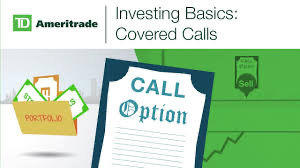Getting Started in the Stock Market
- Drew Quall
- Nov 5, 2020
- 3 min read
Updated: Nov 16, 2020
With all this talk of saving money and investing, you might wonder how to actually get into this system. Before you do anything, you must first figure out what you hope to gain from investing and how much time you are willing to put forward. Obviously, you hope to gain capital, but to what extent and at what cost? There are dozens of ways to invest in the stock market, so you must choose the strategy that best suits your needs and desires.
If you are like most people and do not know a whole lot about the system, it might be a good idea to take a more passive approach and let your money sit in an index fund or an ETF. These investments contain a multitude of different companies within their portfolios, so it is like you are investing in dozens of companies by investing in one fund. These are reliable investments that do not yield crazy amounts, but will lead to steady growth. They are easy to get into, and all you really need is a brokerage account and some capital.
If you want to have more control over where your money is actually going, you can go a more independent route. By opening a brokerage account, you will have the option of investing your money into individual companies. This will give you more freedom with your money, and can yield much higher returns if you invest wisely. However, it requires more effort, time, and experience, and carries a higher risk. Before selecting this option, you should do extensive research on each company you hope to invest in and be prepared to take losses.

A third and less recommended route is options trading, day trading, or investing in penny stocks. This is for advanced traders who have been investing for quite some time, so is not for beginners. This is not for someone who cannot handle serious risk and who does not have serious experience in the market. While it can yield enormous return on investment, you can lose all your money if you are not careful. Because of this risk, it should not be even considered if you are hoping to start off in the market. The ins and outs of this strategy will be discussed in a later lesson.
At the end of the day, it all comes down to what you want to do. If you are just starting and do not want the headache that can be associated with the market, put your money into index funds or ETFs. If you want a bit more control and higher potential returns, invest in reliable, dividend paying blue chip companies that have been around for decades. Regardless of what you decide to do with your money, do not fall into the trap of high risk, high yield investments. When you are starting off, it is much better to take conservative approach. Only when you have years of experience in the market should you even experiment with new strategies.
Hopefully, this was an effective guide for getting into the stock market. There will be future lessons with more detailed strategies of how to actually make money, but this should have guided you in the right direction. If used right, the stock market can make you truly financially independent.



Comments